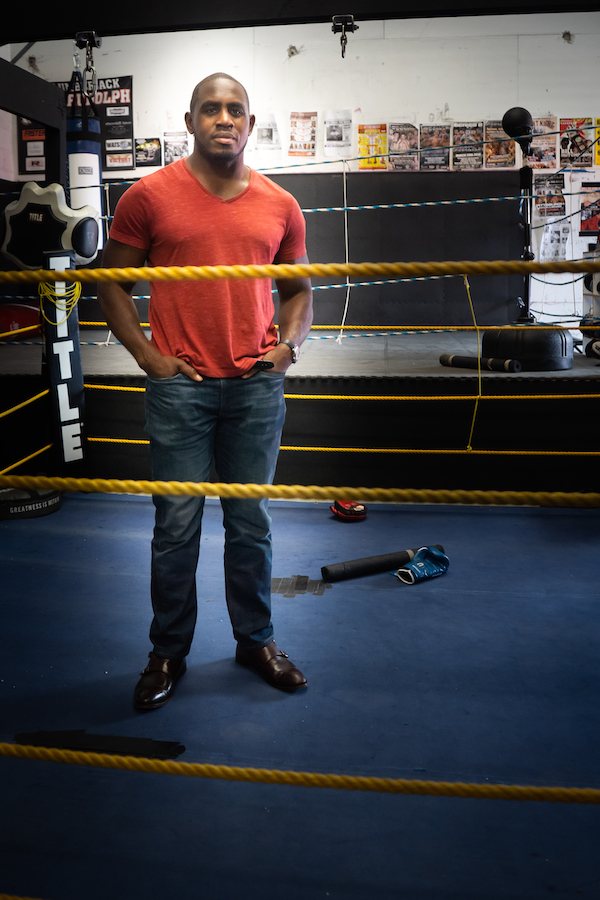There comes a point in life where we all have to stand up for ourselves. If we don’t then we can end up living someone else’s life. We can end up in a relationship we hate and in a career, we loathe just to please someone else.
We can also end up being treated in a way that we feel is unacceptable. If we don’t tackle this head-on over time this can make us feel resentful and lose our self-worth. We will blame others around us rather than taking responsibility for the way we are allowing others to treat us. Our mental health will also suffer in difficult situations.
Standing up for yourself means more than just standing up to thugs on the street or bullies at your workplace. It means standing up to our friends, co-workers, and loved ones. Be an assertive person, not a pushover.
Know your red lines
How can you stand up for yourself if you don’t know what is and isn’t behavior you’re prepared to tolerate?
Before you do anything you need to decide how you want to be treated. This is different for everyone.
Do your friends borrow money from you and pay it back late? Maybe you have to approach them to get it back at the right time. Some people are happy to let this go, others think it’s an unacceptable betrayal of trust and shows that they’re selfish.
Is your significant other always ten minutes late for everything? This might annoy you if, from your point of view, time is something you value highly. Your partner might have their own needs. While sometimes these should be taken into account you shouldn’t compromise on your own fundamentals for the sake of being a people pleaser. It’s counterproductive.
Start by making a list of traits you highly value and behavior you find unacceptable. You could categorize these further:
- Behavior that doesn’t bother you
- Behavior that bothers you a little
- Traits you find unacceptable
- Traits you find extremely unacceptable.
Knowing and understanding your red lines is the first step to vocalizing them. Once we’ve vocalized them we can build up to setting clear boundaries.
The Four Confidences is a little guide that’s big on advice for building confidence
This is a short book that answers the burning question of our time: “How do I build confidence?”
The Four Confidences is based on cold, hard experiences. Not theory. The same way I got confidence in my athletic, academic, and social abilities is what I share here. When I wasn’t confident enough to stay sober, I relied on these techniques to help me stop drinking.
Download the Free GuideLet your friends know the consequences of overstepping those red lines

Setting boundaries is extremely important.
Start with the people who are likely to be the most receptive to you: your friends.
If a friend lets us down, canceling an event at the last moment without a good reason, we need to make it clear to them that this is unacceptable.
Saying ‘Ok, I understand, no worries,’ doesn’t cut it all of the time. You need to make it clear that you’re unhappy. Remember that being overly agreeable is as damaging as being too aggressive.
Dr. Jordan Peterson, the author of 12 Rules For Life, argues we have to develop our ‘inner monster.’ Deciding never to be aggressive is throwing the baby out with the bathwater. It’s better to integrate our aggression and to train ourselves to be more assertive in the right circumstances.1
Make it clear to any friends that if they continue with behavior you find unacceptable there will be consequences.
The very first time you could say ‘Hey, would you mind not being late/making sure you pay me back on time. It’s really important to me so I’d appreciate it.’
If the behavior persists, make it clear that there will be consequences. You could explicitly state you won’t invite them out again, lend them money again, and that it will affect your friendship.
Doing this takes a lot of self-confidence. One of the things holding us back is that we care too much about what other people think. My book ‘Not Caring What People Think Is A Superpower’ lays out exactly how you can shut down these negative voices in your head and get on with your life.
Don’t be scared if a friend or loved one refuses to address your concerns and make the changes you require. You can and should walk away. There is no point in pursuing a friendship or a relationship that doesn’t fulfill your needs.
You need to overcome your fears of losing your friends. I’ve written before on how boxing taught me to overcome fear and boost my self-esteem as well as my well-being. Be sure to check out my writing on it.
Standing up to your enemies
Stand up to your friends and your partner first. Once you have a solid set of friends and a partner with a clear set of boundaries they can support you in standing up to your enemies.
Setting red lines with your enemies gets harder the longer you leave it. The more you allow your jealous colleague to belittle you in work meetings or members of a gang to steal from you, the harder it’s going to get to push back against this.
Should you fight?
Being willing to fight is more important than being able to fight. This is a lesson I learned firsthand on the streets of Pittsburgh in the housing project where I lived that I’ve written about extensively here.
Where I grew up there were always people looking to fight—people I call jackals who have a genuine taste for violence. They would usually be members of a gang. Statistics show that gang members love fighting amongst themselves, something that is only getting worse.2
But even jackals understand that fighting requires effort. It’s a lot easier to get you to fall in line with threats of violence than to actually beat you to the ground. Don’t be a doormat.
Firstly remember if you’re not in jail or on the streets, things are probably not going to get violent. There are legal consequences for assaulting someone that is enough to stop most people from turning a disagreement into a full-blown fight. Violence is also messy and not like it is portrayed on television and in film. Most people generally want to avoid it. That’s not to say that violence isn’t sometimes necessary. It is.
But it’s important to understand that the risk of a disagreement turning violent is much lower than you might think.
If you are genuinely concerned about being dragged into a fight you can take self-defense classes and get to work at the gym.
Check out this Twitter thread I wrote that tells you everything you need to know about self-defense.
A thread on self-defense:
— Ed Latimore (@EdLatimore) May 3, 2021
You wanna learn self-defense? Worried that you can't fight?
With all the shit that can go wrong in a street fight (like you accidently killing him and catching a manslaughter), here's a WAY better plan:
Conveying strength with body language
Your body language tells people a lot about how they can treat you. Jordan Peterson’s simple advice to practice standing up straight everyday is vital. People who stand tall look more confident and therefore less of a target.
If you don’t feel like standing up straight because inside you feel vulnerable, fake it.
You could also try crossing your arms, and maintaining eye contact with people rather than automatically looking away. You don’t have to stare but you can acknowledge people as they pass you in the street or on the bus. Practice this everyday and see what effect it has.
Learning to live with conflict
What happens if someone starts an argument with you? Maybe one of your colleagues at work crosses one of the boundaries you’ve previously set. You’ve told them to stop and they’re just carrying on. Should you walk away? If not, how should you stand up for yourself?
Conflict, not violence, is important.
Chris Voss, an ex-FBI negotiator and author of Never Split The Difference: How To Negotiate Like Your Life Depends On It puts it very clearly in his book: ‘Conflict brings out truth, creativity, and resolution.’3
You must use this to your advantage. Conflict is a calculation. By showing that you are willing to engage in the conflict, your aggressor might back down and give you what they want. Often they are looking for you to roll over. That’s an easy win for them. They know they can get away with walking all over you.
The threat of conflict is more important than instigating it. If a co-worker uses up food you brought into the office fridge, find out who did it and then confront them about it.
‘Hey, could you not use the food I put in the fridge?’ Is a good way to start. Your co-worker might be surprised that you’ve dared to challenge them on day one and that might be the end of the problem.
If they persist you could try:
‘I paid for it, it’s mine and now I don’t have any food for lunch. If you do it again I’ll report you to your manager and take any food of yours you bring in.’
Don’t wait for the incident to happen several times. Take action the first time it happens.
Despite what we might have been led to believe conflict can sometimes be the best route to resolution.
Standing up for yourself is about creating the life you want
It’s important to understand that standing up for yourself is like muscle memory. If you don’t practice it in small areas of your life then it will be harder to stand up for yourself in areas where the stakes are a lot higher.
Standing up for yourself is also not about being a great fighter. It’s about taking responsibility for yourself. Deciding how you want to be treated and then acting on that.
Create the life that you want by refusing to accept treatment you don’t think is acceptable from the people you surround yourself with.
Don’t be the weakest person in the room. Know what you want and then take action to get it.
The Four Confidences is a little guide that’s big on advice for building confidence
This is a short book that answers the burning question of our time: “How do I build confidence?”
The Four Confidences is based on cold, hard experiences. Not theory. The same way I got confidence in my athletic, academic, and social abilities is what I share here. When I wasn’t confident enough to stay sober, I relied on these techniques to help me stop drinking.
Download the Free GuideReferences
You Have To Develop Your Inner Monster, Jordan Peterson (2021) on YouTube [accessed 4th October 2021] ↩
Prevalence of Gang Problems, _National Gang Centre Survey _(2013)[accessed 28th September 2021] ↩
Chris Voss, _Never Split The Difference: Negotiating As If Your Life Depends On It _(Harper Collins, 2016), p.317 ↩




